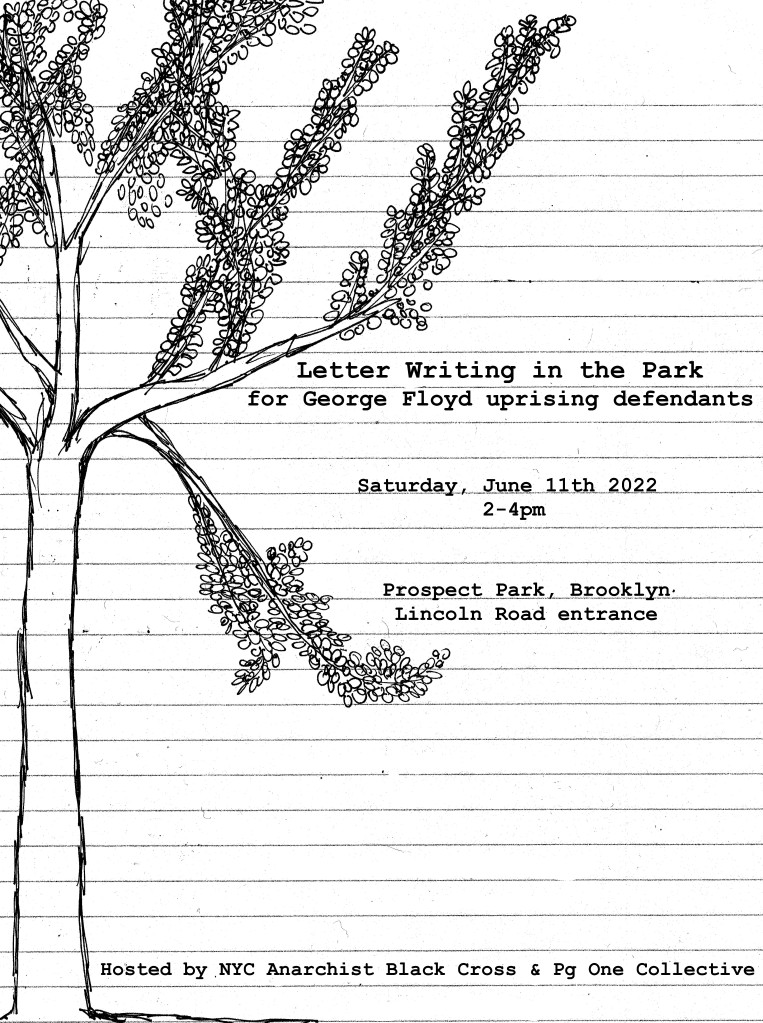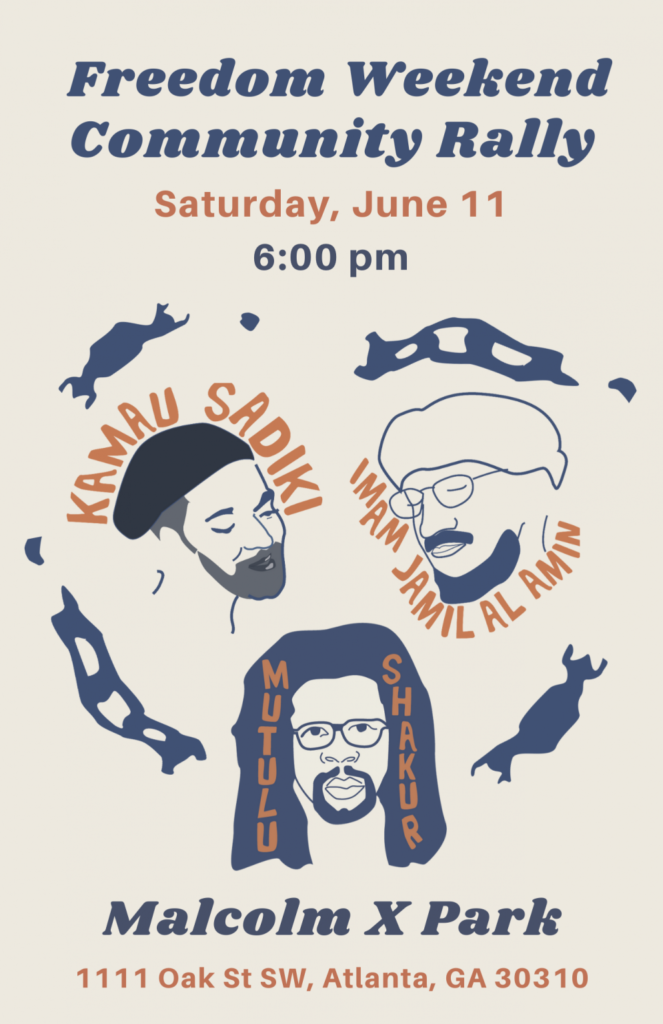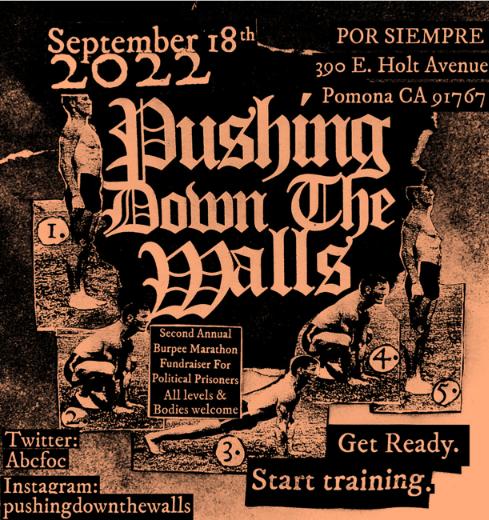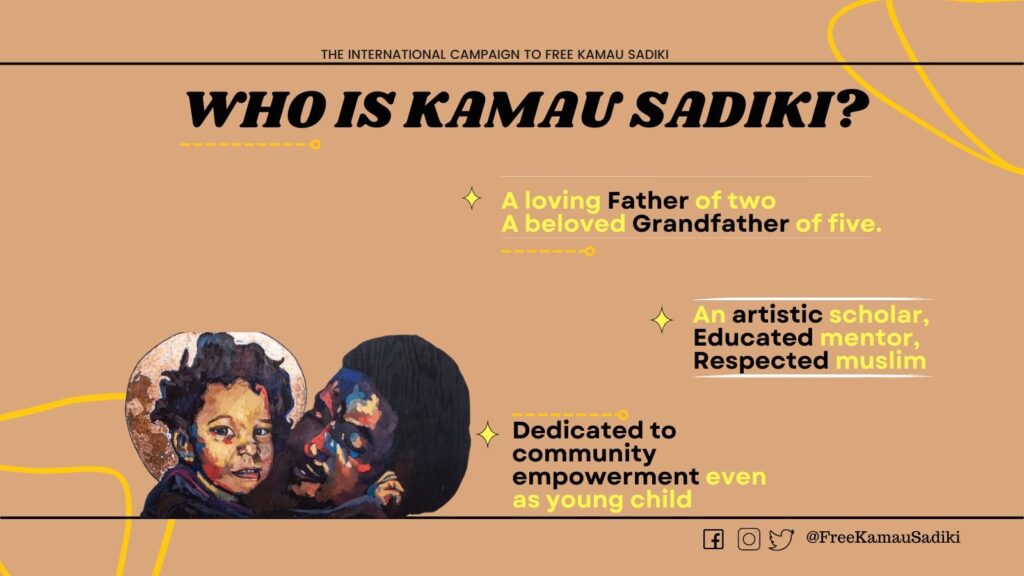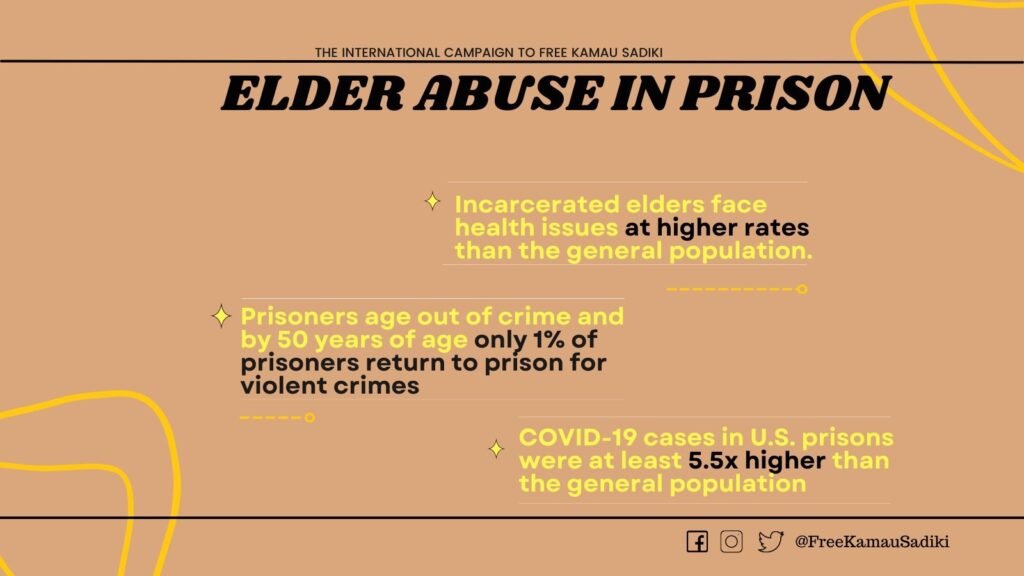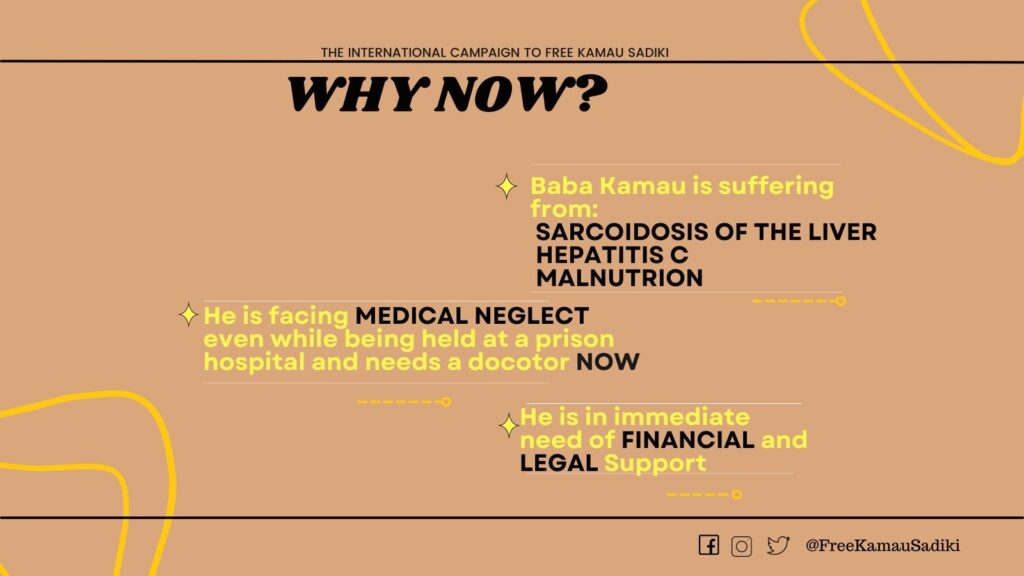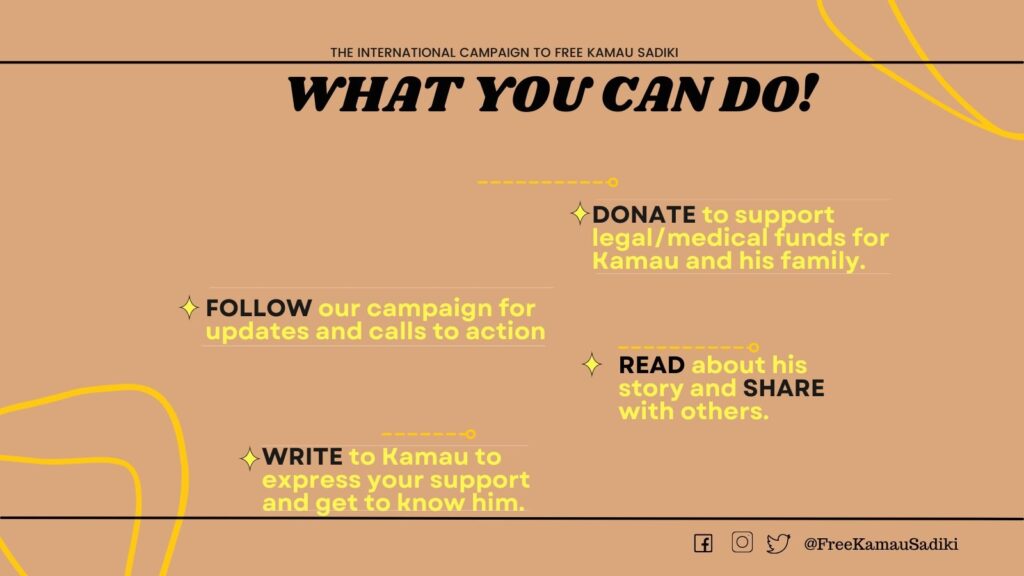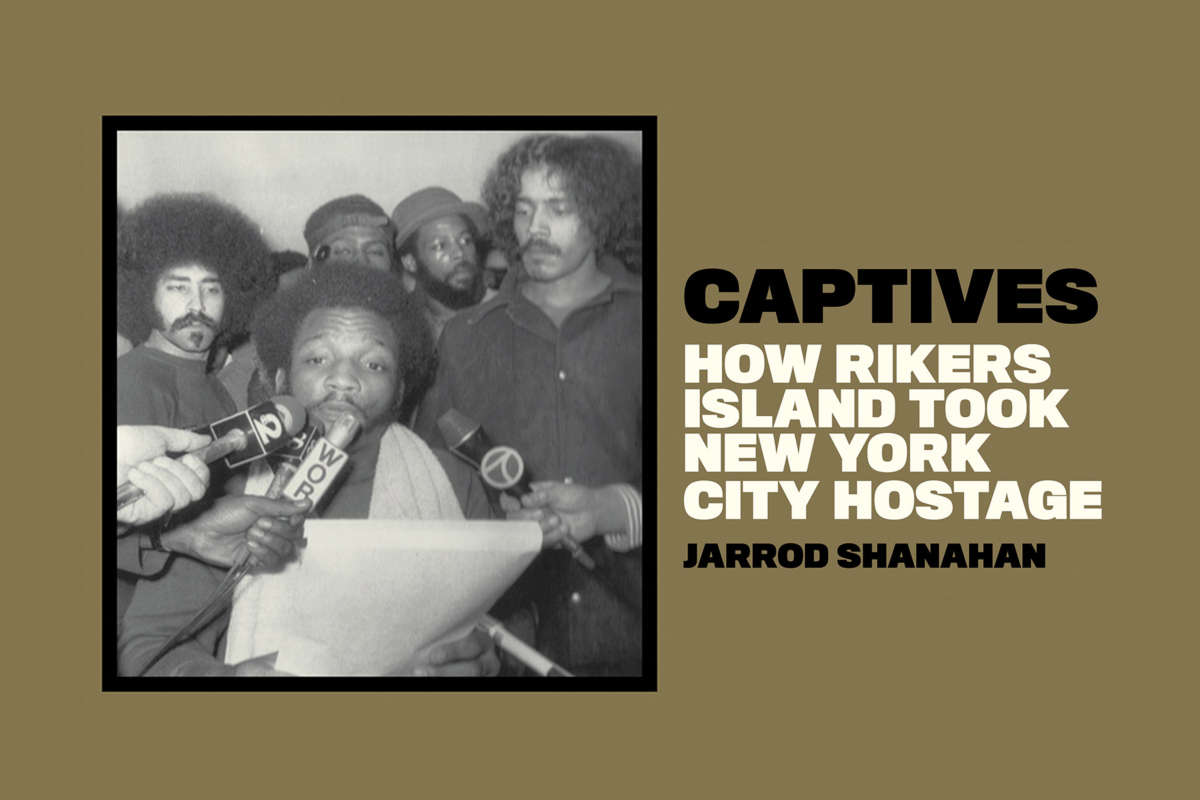
BY David Campbell, Truthout
JJune 9, 2022
Two years after the 2020 Black Lives Matter uprisings began, mainstream politicians are pushing a reactive, fear-based law-and-order politics. In this precarious moment, Jarrod Shanahan’s new book Captives is more necessary than ever. The book traces the history of post-war New York City through the lens of the city’s jails, focusing largely on the notorious Rikers Island jail. Shanahan shows, in vivid detail drawn from extensive research, how the facility became the squalid penal colony it is today. In 448 pages, Shanahan covers city politicking, jail rebellions, the dismantling of the welfare state, and finally, the rise of police and guard unions as reactionary political entities in their own right.
Shanahan knows Rikers well; he served 30 days there in 2016. I met him while preparing to begin my own one-year jail sentence there in 2019. We stayed in close contact throughout my sentence, and have remained close since. Here, I interview him about Captives, and what this history means in light of the city’s plan to replace Rikers with new jails designed under “progressive” ideals, the looming threat of a federal takeover, and our personal experiences as captives there.
David Campbell: Tell me about your writing and research process for this book.
Jarrod Shanahan: This project began when I went on Amazon and typed in “Rikers Island history book” and nothing came up. I just wanted to know the history and understand the social context of this awful place that I got sent to, because you try to process it when you leave.
I also really want to emphasize that archival research is essential, even though it was a fraught undertaking in this case. Documentation was often from the perspective of the jail administrators or their allies in city government. It’s also easy to mistake the information that you have with all of the information [that exists]. But archival work is essential for putting together the basic skeleton of how an institution came to be and how it’s changed over time, and it’s getting easier and easier as a lot of this material gets digitized.
Another important component is speaking with people who were there, whenever possible. I understand there’s an oral history of Rikers coming out. I can’t wait to read it!
The more I learn about Rikers, the more I realize I know so little. Do you ever have that feeling, as a scholar?
Oh, definitely. I actually had that feeling while finishing this book, specifically talking to you about it. When you were locked up there.
Right. You were working on Captives while I was serving my sentence, and we communicated about all kinds of things regarding Rikers.
Yeah. One discussion we had was very humbling for me because I had collected documentation of a number of prisoner disturbances and I thought I had a fairly coherent thesis for how they were connected. And then when we published your article in Hard Crackers about the strike that you helped organize around COVID conditions in Rikers, I told you, “Man, this is so amazing, what you did.” And right away you said, “This stuff happens all the time at Rikers.” So that was a reminder to me that the vast majority of the history that I was writing about, I don’t actually know. So much of it is never documented at all.
One of the most fascinating things in Captives for me was the history of the jail rebellions you were able to uncover, and how they often actually succeeded, even receiving total amnesty. Less surprisingly, the same is true for the guards, who have gotten away with some horrifying things, and rarely is anyone punished. Every once in a while, someone gets some sort of administrative slap on the wrist.
Every once in a while, yeah.
But by and large, for both guards and prisoners, refusing to play by the rules — and often sheer insurrection — has tended to work.
There’s an old saying: “direct action gets the goods.”
Another thing I found really striking was just how petty, nefarious, and reactionary a force COBA [the Correction Officers’ Benevolent Association, the main DOC guards’ union] had been.
No less a prison scholar than Heather Ann Thompson has written that guard unions are actually potential allies in the struggle against mass incarceration. By contrast, I tried to carve out a very clear picture of the reactionary political role of guards and cops in our society, in particular how they have been instrumental in pushing for and reinforcing the entire social order in which mass incarceration forms such an important part. There’s an even more pernicious tendency to view guards and cops in their workforces as simply an amalgamation of individual people. And it’s very much true that these institutions are comprised of individuals who might, in their interpersonal behavior and sometimes even at work, diverge from the overall political function of the organization. But these are very much coherent political power blocks. They serve very clear social functions, and pursue clearly defined interests that are opposed to the dignity and safety of most of the people they police and guard.
Most Rikers staff, like most prisoners, are working-class people of color. They often come from the same communities. Do you think that telling themselves they’re serving some higher social good functions as a kind of coping mechanism for some guards?
I think the best way to view workforces of cops and guards is as remarkably ordinary people who are doing jobs that should not exist, and which transform them over time. It’s an interesting case study in how social being determines consciousness. The vast majority of young people who become jail and prison guards do so because it is the most palatable option among a relatively narrow set of choices. And guards at Rikers, for instance, refer to the 20 years that they must serve before collecting a partial pension as their “20-year sentence.”
You often hear them chatting to each other about how much time they have left…
Yeah. There’s even a popular saying, “Hired in my 20s, retire in my 40s — can’t touch that.” This is the pervasive ideology around the job among rookies: I’ve gotten this lucrative job that’s going to build a secure future, and all I need to do is suffer through it. Law-and-order ideology tends to come later.
So, when they say they’re just doing their jobs, that’s not wrong, just irrelevant. Some of them end up really believing that they’re taking care of prisoners, who would be in Rikers anyway, or that they’re dangerous and need to be separated from society. And none of that’s true.
When you went on strike at Rikers, which directly contributed to the mass release of almost 1,500 people, you were part of a social experiment that demonstrated concretely that at least 1,500 people did not belong there. As we saw in a similar 1983 mass release, which I write about at length in Captives, the local right-wing newspapers were obsessed with finding the wrongdoings committed by the released prisoners to prove that they should not have been let out in the first place. And to my knowledge, there isn’t very much to that effect at all.
Statistically, 13 percent were rearrested in the following months, and very few for serious crimes. But we’re still locking people up.
I took great heart from the No New Jails campaign in New York City a few years back [which sought not only to close Rikers, but also to stop the construction of the new borough-based jails and redirect that funding to investing in communities in order to promote permanent decarceration]. The campaign didn’t succeed in stopping the jails, but it was a small activist campaign, composed of people working in their spare time, lacking the mountains of foundation money that propped up the pro-new-jail side, and it was taken seriously by many New Yorkers as an alternative. It’s easy to get demoralized when you lose, but my primary takeaway from this campaign was that there’s a potentially large audience for abolitionist ideas.
When you were at Rikers in 2016, the Nunez monitor (a court-appointed federal oversight body arising from a 2011 lawsuit regarding the use of force by Rikers guards against prisoners) was fairly new, and security cameras were just beginning to appear. When I was there in 2019-2020, cameras were ubiquitous, and toward the end of my sentence they even started to roll out bodycams.
Cameras were not new under Nunez. Previously, they were required for certain high-risk actions. But as the Department of Justice has shown, guards were adept at strategically concealing violence from view, or failing that, making the footage disappear altogether. So actually, the guards have had a long time to prepare for the prevalence of cameras, which are really only the latest iteration of a long history of reformers documenting abuses in the city jails. Before that, you had plentiful written reports from monitors, city officials, civilian workers and sometimes even guards. And what did they amount to? For instance, I was able to reconstruct two incredibly violent staff riots, one in 1986 and one in 1990, in startling detail. The prison scholar Abby Cunniff hit me up and said, “Come on, Jarrod. How did you know that it was drizzling outside?” It was because these events generated mountains of detailed paperwork, investigations, internal reports, responses to the reports, in which all kinds of ranking members of the department and respected civilian overseers, in addition to the prisoners themselves, presented a similar picture of widespread brutality, the kind of violence that if a normal person meted that out in their day-to-day life, they would be going to prison for a long time. And virtually nothing happened.
Yeah, a lot of guards would say “We’re making a movie,” in regards to the cameras, when they performed a perfunctory pat frisk or something.
One guard told me in 2016, “I have two Academy Awards at home.” Meaning he could act compellingly for the cameras and justify his actions later. I think that the guards like this, who told us that they weren’t worried about the cameras, should be taken at their word.
We both spent time at the Eric M. Taylor Center, or EMTC, which was designed as the flagship facility of penal welfarism at the height of a progressive golden age in New York, and under the stewardship of Commissioner Anna Kross, a devoted local champion of “humanitarian incarceration” and prison reform. We both know firsthand that EMTC is, in layperson’s terms, a shithole.
That’s an academic term, actually [laughs].
Well, one thing that surprised me in Captives was how little time it took to get that way. Within three years, none of the progressive policies envisioned by Commissioner Kross were being implemented, and the place was already abysmal.
You see a lot of the same arguments being made today in New York, about repurposing jails as “sites of civic unity,” as [Judge Jonathan] Lippman calls them, and all the rest of it. If this was ever going to happen, it would’ve happened in the 1950s and ’60s under Kross, for a number of reasons. There was a remarkable bipartisan consensus on crime and punishment, the city had a lot more money for investment in public welfare expenditures, and there was a much more progressive political climate not just in the city but in the nation.
What about the possibility of a federal takeover of Rikers in the form of a receivership? There’s been a lot of buzz lately about the possibility of this last-resort legal tactic, in which a court-appointed authority assumes control of an institution unable to manage its own affairs, to effect positive change at Rikers.
The city has been given a firm timeline, through a series of federal lawsuits, to provide the bare constitutional minimum standards for care at its jails almost continuously since the early 1970s. There’s no reason to expect that the local monitors or the federal government will have any more luck enforcing their will than their predecessors. The guards have too much power and there’s no counterpower willing to oppose them, including the federal judiciary. The bureaucrats and technocrats will not save us. And what that calls to mind, for me, is the necessity to build collective power capable of pushing back.
The subtitle of your book is “How Rikers Island took New York City hostage.” On the one hand, it means very literally holding large numbers of New Yorkers captive. It also means that the present arrangement, by being held up as untouchable, prevents us from finding any meaningful way of moving toward decarceration.
Yeah, it should be clear after at least 50 years of law-and-order politics that it’s actually not making things any better. But simultaneously, this social order has done a very good job of presenting itself as the only possibility. So, the solution to violence is more of the same social constellation that creates violence in the first place. And so, we are very much held captive.
